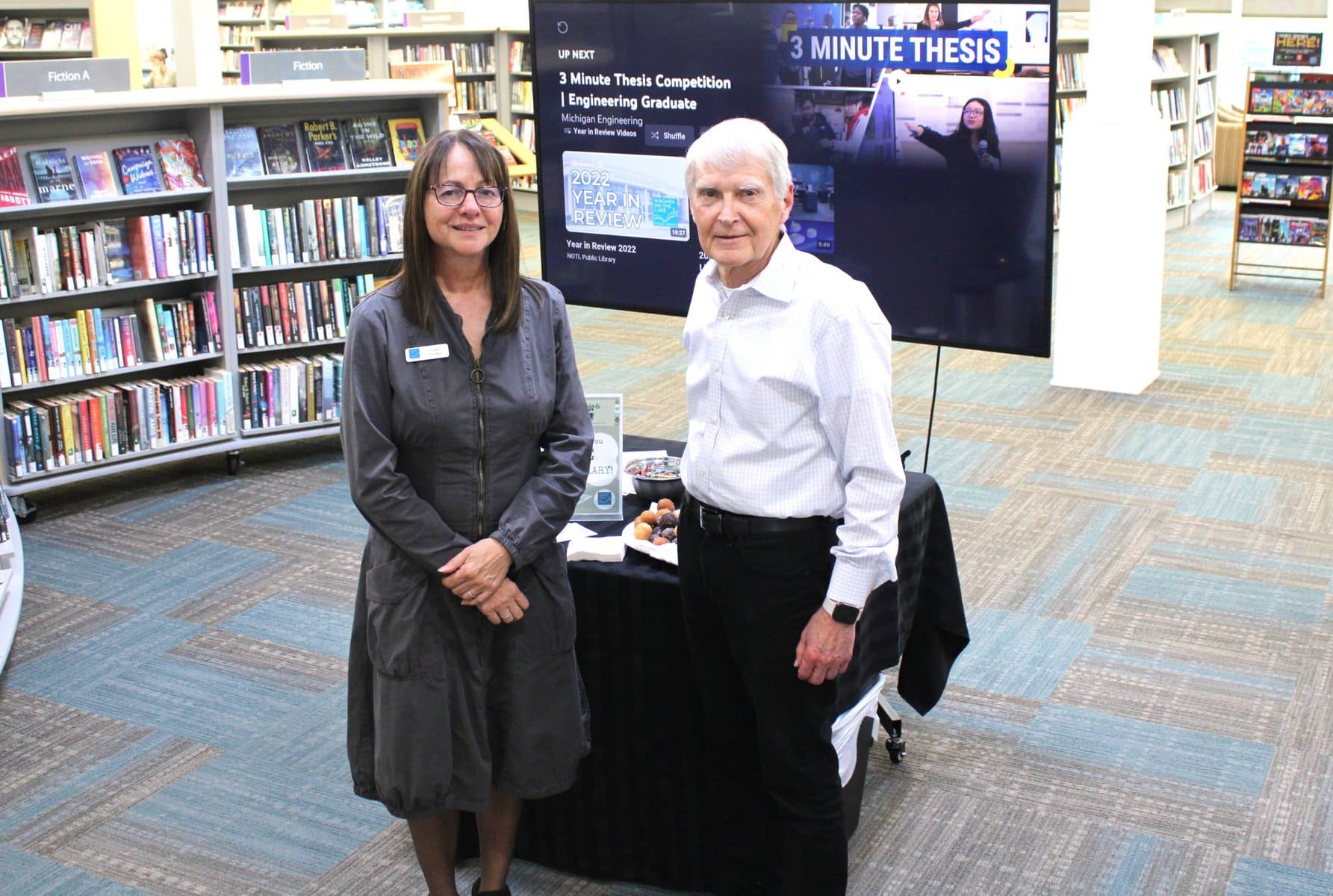A new report on the future of libraries across Canada has detailed some of the biggest challenges they’re up against today – and the Niagara-on-the-Lake Public Library, its staff and board members are echoing its findings.
The report, conducted by the Canadian Urban Institute and released in time for Ontario Public Library Week from Oct. 16 to 20, called for libraries to get relief from operational pressures, establish them as critical infrastructure to municipalities and develop sustainable sources of funding.
“Libraries find themselves picking up the slack for social services. They’re becoming a hub where people can connect,” said Cathy Simpson, the NOTL library’s CEO and chief librarian.
The latter is important in a town such as NOTL, which has a large population of older adults where the library can be a social outlet and combat loneliness, Simpson said.
It’s not just seniors, though, as the library has also created programs for all ages: this is taking the library far beyond its original mission of being a place to borrow reading materials, said the report, “Overdue: The Case for Canada’s Public Libraries.
“Libraries are the one institution that provides a remarkably broad array of critical support to our communities, including for knowledge distribution, culture, health, reconciliation, belonging and our democracy,” it said.
In NOTL, the library has become familiar with this evolving mandate, especially trying to provide an ever-expanding roster of services to the community with provincial funding that has been frozen since 1998.
Wayne Scott, vice-chair of the library board, said the library has been fortunate to have a solid relationship with the town.
“We approach it as a partnership … rather than fighting for dollars,” he said.
Simpson, meanwhile, noted that the report helps paint a picture of the importance of libraries to the community economically.
According to the report, every dollar invested creates a return on investment of $6 in economic activity.
“It’s nice that someone does this because it’s hard for us to do that,” she said.
That number doesn’t even reflect the social impact of libraries, Simpson said.
“That’s always very hard to measure, but it’s so important.”
Libraries in Niagara are taking matters into their own hands by taking steps to curb expenses, including the possibility of sharing services with other libraries in Niagara, such as banding together for bulk purchases.
Scott said the report dovetails nicely with the board’s goals to increase engagement and awareness, ensuring all library services are available in all urban centres.
“That will happen over time in Glendale, but it’s happening now in St. Davids,” Scott said.
In St. Davids, growth includes families with children, while Glendale he expects to become a magnet for newcomers as the region drives to attract industry to the area.
The Canadian Urban Institute compiled the report after three years of consultations with libraries in urban centres across Canada in the wake of the COVID-19 pandemic.
Scott said he is confident in the library’s future, despite the many difficulties ahead, but expressed a hint of caution.
“We have to earn that on an ongoing basis with the services we provide and equally importantly, with the way that we communicate with decision makers about those services and the value that they have.”










